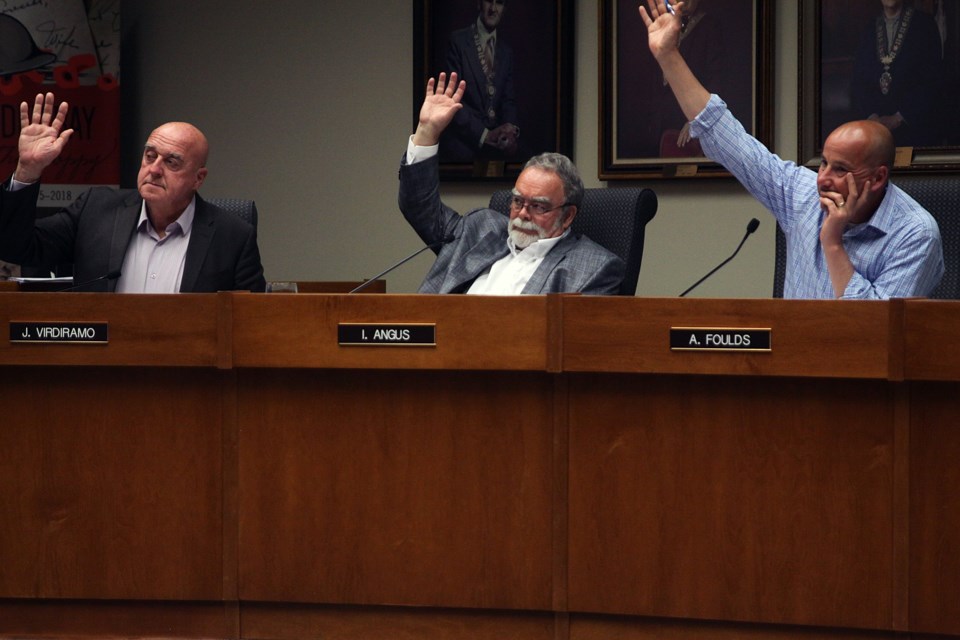THUNDER BAY – People will be paying a bit more to stay in local hotel rooms beginning later this year.
Thunder Bay city council on Monday night approved a recommendation from administration to implement a four per cent tax on all short-term accommodations effective Sept. 1, which is expected to generate about $2 million annually.
It is estimated the 48 accommodation providers – hotels, hostels, motels and bed breakfast enterprises – offer about 2,360 guest rooms with an average daily rate of $115 per night. As well, there are at least 75 Airbnb properties within the city.
The tax will be charged on stays of less than 30 days. It only applies to the costs of the rooms and not other services such as banquets or conference spaces provided by hotels. The provincial regulations prohibit the city from charging the tax onto Lakehead University and Confederation College when they rent out their residences during off months, though city administration said they are discussing the institutions voluntarily collecting the amount.
Coun. Andrew Foulds was adamant the city’s portion of the funds should be used to promote and develop tourism, not for general infrastructure or offsetting levy increases.
“I view this with some excitement about some of the investments we can put in tourist facilities,” Foulds said. “Like a new soccer plex, perhaps money towards an art gallery, reinvestment in the auditorium, other twin-padded hockey rinks. I view this as a tremendous opportunity.”
In 2017 the city had occupancy rates of 73.2 per cent, surpassing the 69.1 per cent provincial average. Hotels were particularly busy during the summer months, when the city’s nearly 90 per cent occupancy rate in July and August was the third highest in Canada.
The ability to impose the tax was only granted by the province late last year, which requires municipalities to devote 50 per cent of the revenue generated to a non-profit focusing on tourism promotion for product development. The remaining 50 per cent is kept by the municipality, which can decide how to use those dollars.
The four per cent rate is standard with what other Ontario municipalities, including Kenora, London, Windsor and Sault Ste. Marie, have implemented.
Foulds argued the city would benefit from having the money to stay in line with other Ontario cities trying to attract traffic.
“They are able to put together tourist advertising packages that make us look silly,” Foulds said.
“We don’t have the resources to compete with those other municipalities when it comes to product development. This will allow us to compete for tourists. It will level the playing field for this municipality.”
While Thunder Bay Hotel Association president Roberta Sawchyn was in favour of the tax, low-budget motel operator Sayed Elmahriki urged council to consider an exemption for businesses operating with 15 rooms or less.
Many of the people staying in his motels can’t afford an increase of $2 or more per night, he said.
“It would make it very difficult for our clients,” Elmahriki said, adding there have been cases when people have chosen to sleep outside or in their vehicles over a difference of a couple dollars.
“Our clients represent the poor sector of our society, which are the single mothers on welfare, students new to Thunder Bay, people who used to live in the Shelter House on a regular basis and need a night away from the shelter.”
The people staying in those motels aren’t tourists and wouldn’t benefit from initiatives boosting the local travel industry, he added.
Coun. Frank Pullia questioned the equity of imposing the hike onto people staying in the economy-rate hotels, calling it a tax on the poor. He eventually ended up supporting the recommendation.
That debate didn’t set well with Coun. Paul Pugh, who noted he was chair of the city’s poverty reduction committee.
“I think we’re talking about the hotel industry and we should stick to that. We shouldn’t muddy the waters by pretending that this is somehow anti-poverty or a housing program,” Pugh said. “It is not. It is the hotel industry and we should deal with it accordingly.”
